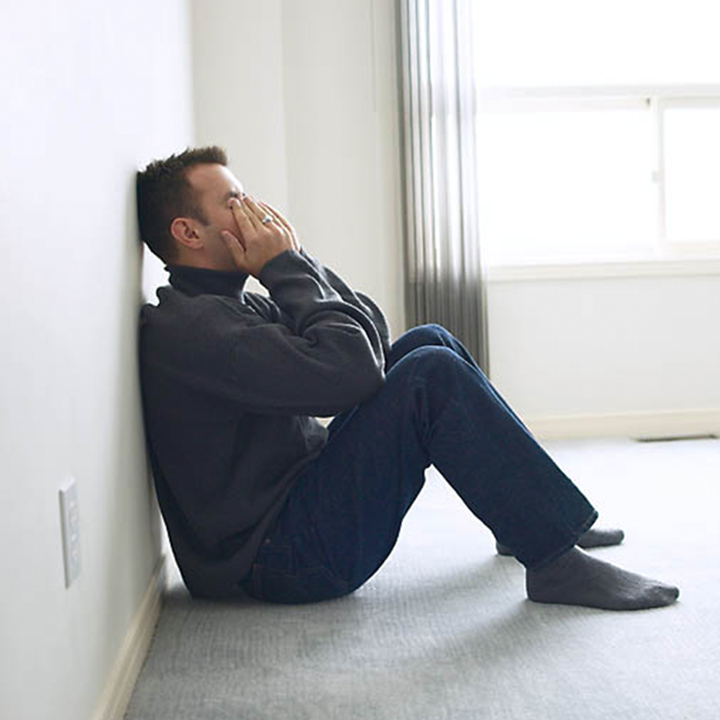Traumatic Events Tip Sheets | Mental Health Considerations

Voices Center for Resilience Tip Sheets Following Traumatic Events
Mental Health Considerations
After a Traumatic Event
Following acts of violence, social or civil unrest or domestic terrorism – such as the attack on the Capitol Building – many people experience similar reactions. It is important to know what to expect, how you can cope, and when you should seek professional help. This document provides recommendations based on what Voices Center for Resilience has learned from working with thousands of individuals victims’ family members, survivors, and responders since 2001.
Common Reactions to Trauma
- Intense or unpredictable feelings. You may feel sad, anxious, or nervous. You may feel irritable, angry, or moody, or you may experience feelings of guilt or self-blame.
- Strains on your relationships. Increased conflicts with friends, family members, and colleagues can occur. You might feel isolated or disengaged from your usual social life.
- Physical symptoms. You may have trouble sleeping or sleep too much. You may not have an appetite or begin overeating. You could have other physical symptoms like headaches, stomach aches, and chest pain. Seek medical attention if these symptoms persist or become severe.
- Flashbacks. You might experience vivid memories of the event that can occur out of the blue and may lead to physical reactions such as rapid heartbeat or sweating. They can make concentration and decision-making difficult.
- Higher sensitivity. Triggers such as sirens, loud noises, or burning smells can bring back memories of the traumatic event, creating heightened anxiety that it will happen again.
Danger Signals
Seek professional help if these symptoms persist:
- Thinking about suicide or self-harm
- Being alone too much
- Not being able to talk to other people about what you are feeling
- Sudden changes in weight
- Continued trouble sleeping
- Using too much alcohol or other drugs (including prescription drugs)

Voices Center for Resilience Tip Sheets Following Traumatic Events
Coping Tips and Techniques
Getting Through the First Few Days and Weeks
- Remember that there is no one “right way” to deal with everything you are feeling. What’s important is to find a way that works for you, and be patient with yourself.
- Rely on a social support system. Reach out to family and friends with whom you feel close, or connect with others who may have shared the stressful event or have had similar experiences.
- Limit news consumption. Constant replay of a traumatic event can increase stress and anxiety and cause you to relive the event. Reduce your exposure to the news and social media.
- Avoid making major life decisions if possible. Big changes like switching jobs or careers, selling your home, and moving can be stressful and are even harder to adjust to directly after experiencing a traumatic event.
- Express your emotions. Holding in your feelings can be unhealthy and can prolong the recovery process. Cry when you need to and know that it’s okay to have moments of joy even after a trauma. It does not mean that you are “forgetting” those who suffered or died.
- Use spirituality, meditation, or relaxation techniques. Prayer, meditation, yoga, mindfulness, guided imagery, and other relaxing activities can all be effective means of relieving stress.
- Talk about the traumatic experience with empathetic listeners. Reach out to family members or friends, a support group, a spiritual leader, a counselor, or others whom you can confide in.
- Take care of your mind and body. Engage in relaxing activities to help you heal. Eat healthy food. Try to get regular exercise and sleep, and spend some time outdoors in nature. Avoid over-using alcohol, drugs, and participating in risky behaviors. Avoid stimulants like caffeine, sugar, or nicotine.
Getting Through the Long Term
- Heal at your own pace. Individuals grieve differently and in their own time. It may take weeks, months, and in some cases, years to fully regain equilibrium.
- Resume your daily routines. Reestablishing your normal routines can help you regain a sense of control over your life and reduce anxiety.
- Join a local support group. A support group, led by a trained professional, can provide a safe place for you to exchange your thoughts and feelings and learn techniques on how to deal with the trauma.
- Make meaning. Take small steps to healing by committing to doing something personally meaningful and fulfilling every day. Doing even small, simple things that are enjoyable can make you feel better.
- Give back. Offering to help others, such as through volunteer work, can give you a sense of purpose and a shared goal with individuals who have similar interests.
- Participate in a peer-to-peer network. Peer support can create an inclusive place for you to exchange ideas and provide support to others who have a shared experience, knowing you are not alone.
- Remember that the road to recovery is not a straight line. Even after time has passed, you may experience a reawakening of intense feelings when reminded of the tragedy.
- Find a way to commemorate. Gathering with other family members, responders, and survivors at commemorative events, or establishing memorials, scholarships, and foundations to honor those who have died provides a meaningful way to promote healing in the lives of those who survive

Voices Center for Resilience Tip Sheets Following Traumatic Events
When to Seek Professional Help
It is normal to experience anxiety, fear, deep sadness, and even nightmares after a traumatic event. If these symptoms do not seem to be getting better after several weeks, it may be time to seek professional help. Only a mental health professional can diagnose conditions like PTSD, depression, or anxiety, but it is important for you to be aware of what to watch for, so you know when to seek professional help.
Recognizing Post-Traumatic Stress Disorder
Seek professional help if these symptoms persist for more than one month:
- Recurring intrusive, distressing memories of the event, flashbacks, and nightmares of the trauma
- Increased arousal and feeling on edge, including inability to sleep, concentrate, or function normally
- Persistent avoidance of all reminders of the trauma
- Feeling detached
- Persistent feelings of anger, fear, guilt, horror, or shame
Recognizing Major Depression
Seek professional help if the symptoms below persist for more than two weeks, or if you have thoughts of suicide or self-harm:
- Sad mood almost all day, every day
- Loss of interest or pleasure
- Marked changes in appetite and weight
- Inability to sleep or sleeping too much
- Fatigue and loss of energy
- Feelings of worthlessness or guilt
- Poor concentration, inability to think, or indecisiveness
Recognizing Anxiety Disorders
Many types of anxiety disorders could develop or be made worse by traumatic events, such as panic disorder, generalized anxiety disorder, and phobias.
Talk to a mental health professional if any of the following symptoms persist or become troublesome:
- Excessive worry
- Irritability or outbursts
- Sleep disturbance
- Difficulty concentrating
- Restlessness or feeling on edge
- Muscle tension
- Fatigue
Recognizing Panic Attacks
Many panic attacks are sudden periods of intense fear that come on quickly and reach their peak within minutes. Talk to a mental health professional if any of the following panic attack symptoms persist or become troublesome:
- Heart palpitations
- Sweating
- Trembling or shaking
- Sensations or shortness of breath, smothering, or choking
- Feelings of impending doom
- Feelings of being out of control
VOICES Support - Phone: 203-966-3911; Email: support [at] voicescenter.org (Support[at]VoicesCenter[dot]org)
VOICES Mission - From 9/11 to today, Voices Center for Resilience assists communities in preparing for and recovering from tragedy, and provides long-term support and resources that promote mental health care and wellness, for victims’ families, responders and survivors.
